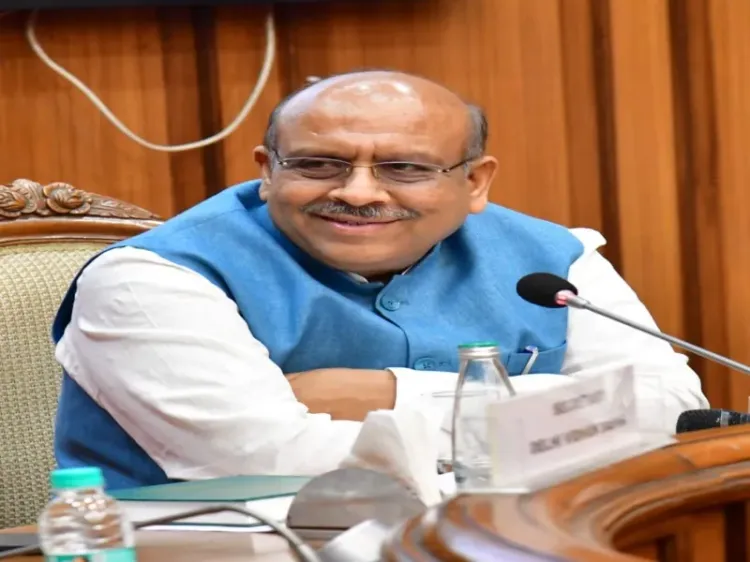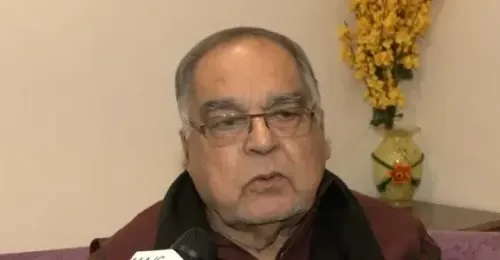What Are the Key Highlights from CAG Reports and E-Business Initiatives in Delhi Assembly’s First 100 Days?

Synopsis
Key Takeaways
- First 100 days marked by significant reforms.
- New committees established for inclusivity.
- Longest legislative activity in 25 years.
- Audit Para Monitoring System to enhance financial oversight.
- Commitment to transparency and accountability.
New Delhi, June 2 (NationPress) Speaker Vijender Gupta emphasized the significant milestones of the Delhi Assembly, including the tabling of CAG reports, efforts toward paperless operations, environmental initiatives, and the revival of parliamentary traditions during its initial 100 days.
As the Assembly nears its 100th working day on June 4, Gupta announced a review and amendment of Rule 280 of the Rules of Procedure to align with the practices of the Lok Sabha and Rajya Sabha, as mandated by the Government of National Capital Territory of Delhi (Amendment) Act, 2021.
This review will aim to simplify legislative language and incorporate gender-neutral terminology, showcasing the Assembly’s commitment to inclusivity, clarity, and equality in its operations.
He noted that a series of groundbreaking reforms and accomplishments have been documented in just 100 days.
To honor the Assembly’s achievements, a special report card is being compiled to record the key milestones, decisions, and reforms, according to an official from the Assembly secretariat.
This report will serve as both a historical account and a reaffirmation of the Assembly’s commitment to transparency, accountability, and reform-oriented governance, he stated.
The Speaker highlighted that the Assembly has conducted two complete sessions—a significant shift from the previous norm of holding only one session annually.
Overall, the House convened for 12 sittings and engaged in legislative business for 46 hours and 16 minutes, marking the longest legislative activity in the past 25 years, he mentioned.
On numerous occasions, proceedings continued beyond the usual hours, extending until 7 p.m.
Crucially, the House is now being prorogued rather than adjourned sine die, indicating a move towards a more structured and accountable legislative schedule, he remarked.
In a pivotal policy decision, the Speaker also sanctioned the formation of two new committees—the Committee on the Welfare of Senior Citizens and the Committee on the Welfare of Transgenders and Persons with Disabilities.
Gupta also noted a major advancement in financial transparency, as six long-delayed reports from the Comptroller and Auditor General (CAG) were presented in the House during this timeframe.
To enhance audit follow-up mechanisms, the Assembly is developing a dedicated Audit Para Monitoring System (APMS) mobile application.
This digital tool will facilitate real-time tracking of audit recommendations, boost compliance, and strengthen financial oversight.










